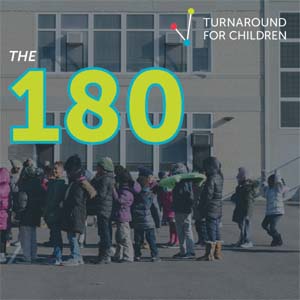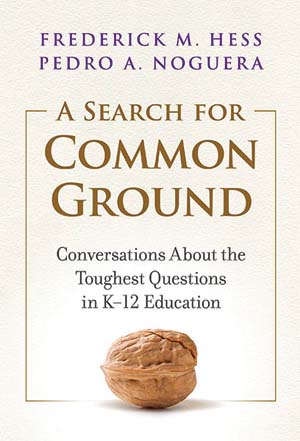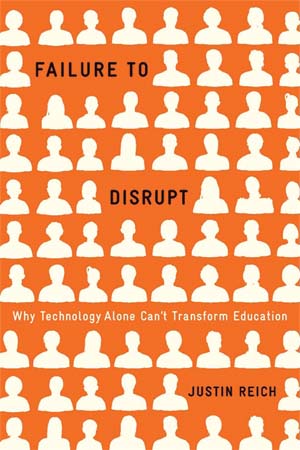Syllabus: Resources for Learning Forward
“The 180” Podcast

School leaders across the country are seeking solutions to new challenges posed by the return to in-person schooling. In a two-part series of “The 180”—a podcast distributed by the nonprofit organization Turnaround for Children (turnaroundusa.org/podcast)—author Zaretta Hammond highlights the importance of centralizing culturally responsive practices (CRP) in navigating this terrain. Hammond, a teacher educator and author of Culturally Responsive Teaching and the Brain: Promoting Authentic Engagement and Rigor Among Culturally and Linguistically Diverse Students, draws on what we know from brain science to outline a framework for CRP. Central to the framework is a prioritization of slowing down and allowing students to take ownership of their learning. Kids are naturally curious, she explains, but need the freedom to explore ideas, time to process new information, and time to engage in meaningful relationships with each other and their teachers so they can feel safe enough to take risks inherent in learning. Despite fears over students’ learning gaps in the wake of the pandemic, Hammond warns against cutting recess, speeding up instruction, or doubling down on skill-and-drill teaching. While equity may be the intention behind such practices, she says, they actually harm students from racially and socioeconomically marginalized communities. Throughout this podcast, Hammond provides scientific insight and tangible strategies for making classrooms welcoming spaces for all students.
“Have You Heard” Podcast

In the podcast “Have You Heard” (haveyouheardblog.com/have-you-heard), journalist Jennifer Berkshire and education historian Jack Schneider engage each other and a long list of experts in discussions on hot-button education issues. As they examine charter school policy, curriculum reform, or the challenges of remote learning, among other topics, they grapple with deep, philosophical questions about the implications of determining how and to what purpose we are educating our nation’s children. For example, in episodes #123 “Schooling the Workforce,” #107 “Learning to Earn,” and #104 “A New Secretary for the Department of Education,” they contend with the age-old trope that education is the great equalizer and ask whether schools can truly serve as our primary pathway for social mobility. In another series of episodes, including #120 “How Pronouns Became Landmines: The Conservative War on Trans Youth” and #113 “The K–12 Culture Wars,” they ask important questions about who should get to decide what happens in schools, and they examine how schools play a role in determining representation in democratic systems. In addition to being informative and thought-provoking, this podcast is humorous and engaging.
A Search for Common Ground: Conversations About the Toughest Questions in K–12 Education

As school leaders know all too well, discussions about education have become increasingly polarized. A recently published book holds out hope for respectful debate and areas of common ground. Pedro A. Noguera, the dean of the USC Rossier School of Education, and Frederick M. Hess, a senior fellow and director at the American Enterprise Institute, have long fallen on opposite sides of the ideological divide. In their book, A Search for Common Ground: Conversations About the Toughest Questions in K–12 Education, they make a valiant effort to engage in sustained and civil dialogue about a host of issues facing school leaders, educators, and policymakers. Through a series of letters written to each other during the COVID-19 lockdown, they discuss topics including the purpose of schooling, school choice, teacher accountability, and civics education. While they don’t agree on much, they do find places of overlap and participate in nuanced debate. Their book offers multiple perspectives on our most pressing educational issues and provides an example of thoughtful discourse on contentious issues. Individual chapters, most notably “The Achievement Gap,” “Social and Emotional Learning,” and “Diversity and Equity,” would make for great points of discussion in professional learning communities.
Failure to Disrupt: Why Technology Alone Can’t Transform Education

Online teaching platforms, computer programs that personalize learning, and other new technologies have been packaged and sold as a “magic formula” or salve for everything that ails education systems. In his book Failure to Disrupt: Why Technology Alone Can’t Transform Education, digital expert Justin Reich reviews the history of and research on education technology to provide an insightful and clear analysis of what we can—and cannot—expect from such inventions. Perhaps unsurprisingly, given everyone’s experience relying on technology over the past two years, Reich contends that despite huge investments, there is no evidence of district or schoolwide transformation from technological interventions alone. While there is evidence of incremental change, positive outcomes are most common in math, among highly motivated students with strong literacy skills, and in schools with experienced teachers. Even then, such outcomes often only occur after a year of implementation. Given that Reich explains the research on various programs and products—while situating this knowledge in a thorough discussion of the opportunity costs of buying, training, and supporting staff—Failure to Disrupt is a helpful read for school leaders tasked with determining which programs to invest in.
